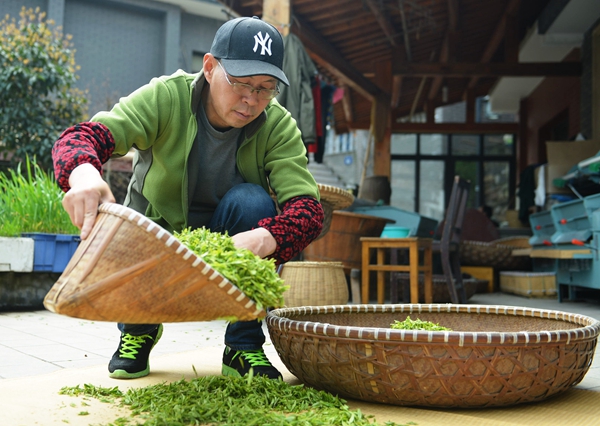 |
|
A tea grower processes newly-picked Longjing tea leaves in his tea workshop in Hangzhou. LONG WEI/CHINA DAILY |
Longjing, a type of green tea grown in Hangzhou, Zhejiang province, was the most popular with over 18,000 orders at an average price per order of 187 yuan, Suning figures show.
Other top-sellers have included Maofeng tea and Lu'an Melon Seed tea, also green teas.
"All of these orders will be delivered in April when tea producers finish the traditional elaborate tea-making process," Wang added.
But his company is not alone in adopting more modern approaches to the ancient trade, as Chinese consumers re-kindle their enthusiasm for drinking tea.
Last year, e-commerce rivals Alibaba Group Holding Ltd and JD.com both launched their own spring tea online promotions, to help tea-lovers access top-quality brands with just the click of a mouse.
According to the China Tea Marketing Association, e-commerce accounted for just 8 percent of total tea sales in 2014, but it is now the fastest-growing channel and is playing an increasingly important role in promoting tea, particularly to younger Chinese.
Wu Guangwu, who is in charge of marketing Shifeng Longjing tea at Wangyutai, a time-honored tea brand in China, said the chain has already embraced online selling.
